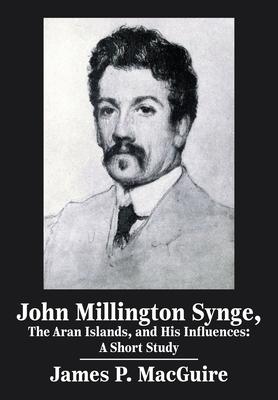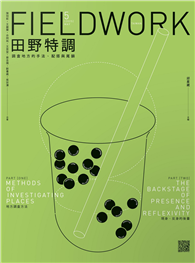John Millington Synge, who along with William Butler Yeats and Lady Isabella Augusta Gregory spearheaded the Irish Literary Revival of the early twentieth century, was chiefly inspired by the four trips he took to the Aran Islands in the late 1880s and early 1890s. Synge was born into a prominent, if fading, landholding family of the Irish Protestant Ascendancy. After taking his degree at Trinity College, Dublin, he used his modest income to live in Europe in hopes of becoming a writer. His life took a decisive turn in Paris, where he met Yeats, who urged him to visit the Aran Islands - rocky, Irish-speaking outposts off the coast of Galway, and there "find a life that he has never found expression." Synge’s resulting visits and the highly charged poetic language that flowed from them in prose, verse and, most of all, drama, changed the course of Irish and world literature. James MacGuire examines Synge’s background and early life, recounts the origins of the Irish Literary Revival, and compares and contrasts Synge’s writing on the Aran Islands with earlier and later accounts. This study also examines Synge’s work using Thomas Hardy as a contemporary point of reference in rural literature as well as Synge’s influence on later Irish dramatists, including Sean O’Casey, Eugene O’Neill, Samuel Beckett, Brian Friel, and, in the twenty-first century, Conor McPherson, Martin McDonagh, and Mikel Murfi. The book concludes with an appreciation of Synge’s continuing influence on Irish literature and Irish nationalism generally.
| FindBook |
有 1 項符合
John Millington Synge, the Aran Islands, and His Influences: A Short Study的圖書 |
 |
John Millington Synge, the Aran Islands, and His Influences: A Short Study 作者:Macguire 出版社:Academica Press 出版日期:2024-05-15 語言:英文 規格:精裝 / 150頁 / 普通級/ 初版 |
| 圖書館借閱 |
| 國家圖書館 | 全國圖書書目資訊網 | 國立公共資訊圖書館 | 電子書服務平台 | MetaCat 跨館整合查詢 |
| 臺北市立圖書館 | 新北市立圖書館 | 基隆市公共圖書館 | 桃園市立圖書館 | 新竹縣公共圖書館 |
| 苗栗縣立圖書館 | 臺中市立圖書館 | 彰化縣公共圖書館 | 南投縣文化局 | 雲林縣公共圖書館 |
| 嘉義縣圖書館 | 臺南市立圖書館 | 高雄市立圖書館 | 屏東縣公共圖書館 | 宜蘭縣公共圖書館 |
| 花蓮縣文化局 | 臺東縣文化處 |
|
|
圖書介紹 - 資料來源:博客來 評分:
圖書名稱:John Millington Synge, the Aran Islands, and His Influences: A Short Study
內容簡介
作者簡介
James MacGuire lives in New York City with the sublime Michelle Coppedge. He is the U.S. managing editor of the Catholic Herald and a contributing editor to Quest. He has worked at major media companies, including Time Inc., Macmillan, and the Corporation for Public Broadcasting; been a Senior Fellow at the Manhattan Institute and the Center for Social Thought; and taught at Johns Hopkins University, Cambridge University, and The Sheen Center. MacGuire’s work has been published in dozens of national magazines. He is the author or co-author of fifteen books.
Postcolonial Stylistics
Postcolonial Stylistics
Chaucer’s Ethical Philosophy
Potter Stinks: Gender and Species in J. K. Rowling’s Harry Potter Series
Potter Stinks: Gender and Species in J. K. Rowling’s Harry Potter Series
Conjuring the Haint: The Haunting Poetics of Black Women
Conjuring the Haint: The Haunting Poetics of Black Women
Migration Literature in Translation: From U.S. Latinx Texts to Transnational Readers
Emporialism: Department Store Fictions and the Politics of the Mediterranean
Freedom Is Not Enough: T. S. Eliot for Liberation, Resistance, and Hope
Postcolonial Stylistics
Chaucer’s Ethical Philosophy
Potter Stinks: Gender and Species in J. K. Rowling’s Harry Potter Series
Potter Stinks: Gender and Species in J. K. Rowling’s Harry Potter Series
Conjuring the Haint: The Haunting Poetics of Black Women
Conjuring the Haint: The Haunting Poetics of Black Women
Migration Literature in Translation: From U.S. Latinx Texts to Transnational Readers
Emporialism: Department Store Fictions and the Politics of the Mediterranean
Freedom Is Not Enough: T. S. Eliot for Liberation, Resistance, and Hope
|









